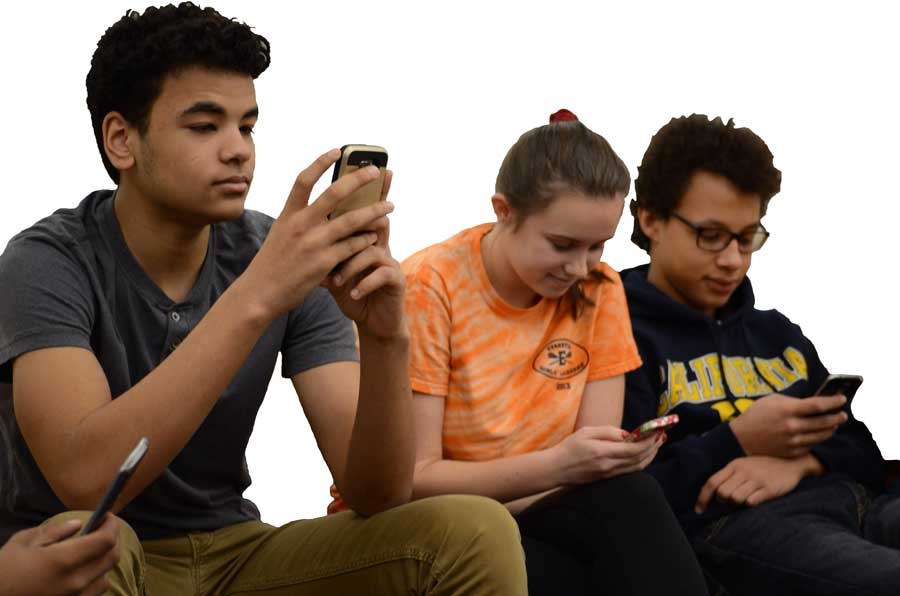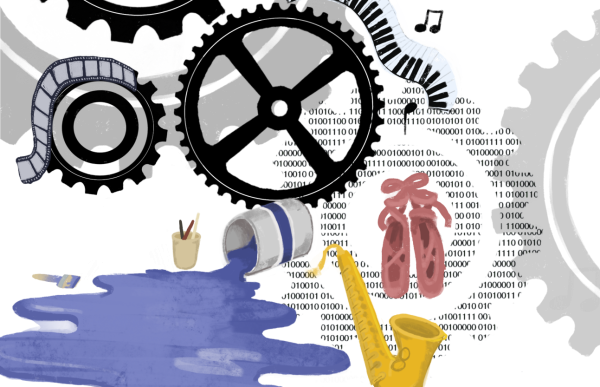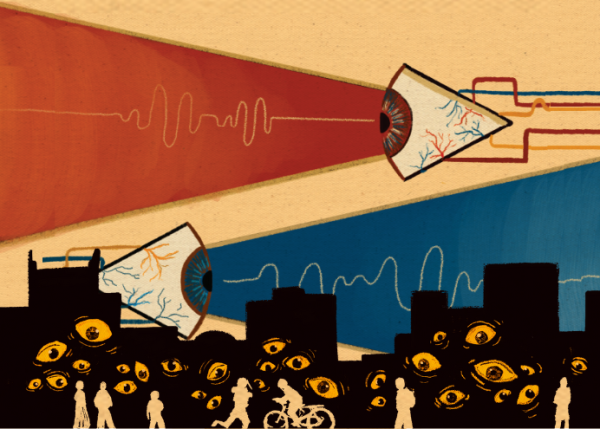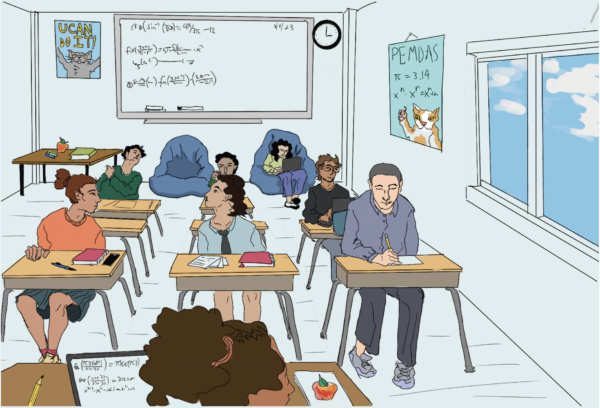Your phone may be controlling your life
Nathan Romero, sophomore, Caroline Moore, senior, and Khalil Royster, sophomore
Just admit it. You’re addicted.
While social media gives you access to friends and family, it has made it impossible to put down your phone.
“We treat social media like it’s a goal and not a pathway to engaging with people in different ways,” says Matthew Walsh, Psychology teacher.
Walsh explains that when you post something on a site like Instagram or Facebook, pleasure centers are triggered and your brain releases endorphins. This is what causes a dependency or addiction to an object.
With the rising number of students becoming dependent on technology, the ability to connect online has taken a toll on real friendships.
“The dependence on technology to communicate true emotions makes having conversations face to face rare and ungenuine,” explains Reed Frazel, junior.
Technology fails to communicate tone, empathy or personal touch. A great deal of emotion gets lost in every text or comment sent.
We all have a need for gratification and for some of us that gratification comes in the form of a like or comment. With the instant flood of praise and compliments that come with posting a “good picture,” it can be challenging for your brain to process.
“The fact is that you get this immediate gratification from using social media that the brain is not used to and can create an addiction,” explains Walsh.
For many students the first thing they do when they wake up in the morning is scroll through Twitter or check their Snapchats. It has become a standard of living as basic as brushing teeth or eating.
“I’ve become reliant on my phone, but so have the people around me. Even those two minutes at the end of class, when everyone’s on their phones, could be used in a more useful way,” says Maeve Mallers, junior.
Walsh explains that while social media can be a great outlet for new forms of communication, it should not be your only form of communication.
For more information about the effect of technology on your brain click here.
Your donation will support the student journalists of the Evanstonian. We are planning a big trip to the Journalism Educators Association conference in Philadelphia in November 2023, and any support will go towards making that trip a reality. Contributions will appear as a charge from SNOSite. Donations are NOT tax-deductible.











